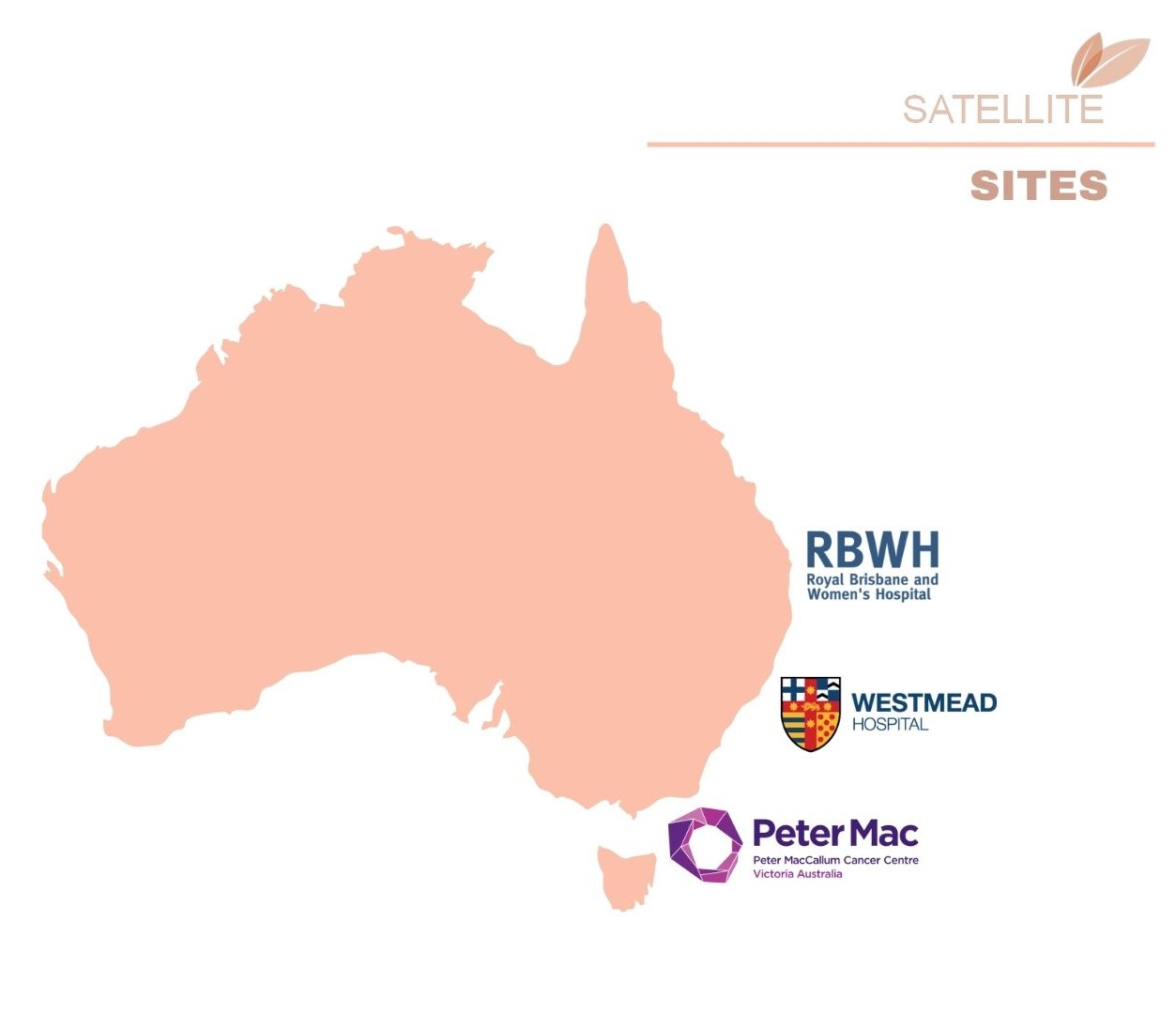SATELLITE Study
The standard treatment for endometrial cancer typically involves surgery to remove the uterus, fallopian tubes, ovaries, and sometimes lymph nodes. However, this approach may not be ideal for women wishing to preserve fertility or for older women, those with obesity, or individuals with other health conditions that make surgery a high risk.
Approximately 20-30% of endometrial cancers are linked to defects in the body’s DNA repair mechanisms, specifically the Mismatch Repair (MMR) pathway. This pathway is responsible for fixing errors during DNA replication, and when it’s defective—known as Mismatch Repair deficiency—unrepaired errors can lead to cancer.
Immunotherapy works by helping the immune system recognise and target cancer cells with MMR deficiency.
The SATELLITE Study is focused on evaluating the effectiveness and safety of Dostarlimab, a new immunotherapy treatment for patients with early-stage endometrial cancer. Dostarlimab is an immunotherapy drug that boosts the immune system, helping it target and attack cancer cells with MMR deficiency. It works by blocking a specific protein in cancer cells, which not only enables the immune system to fight the cancer but also slows tumour growth.
While Dostarlimab is already approved in Australia for treating adult patients with recurrent or advanced MMR-deficient endometrial cancer, it is not currently approved for early-stage cases. The SATELLITE Study will test whether Dostarlimab can be an effective non-surgical treatment for women with early-stage MMR-deficient endometrial cancer—particularly for those who either cannot undergo or do not want surgery, or who wish to preserve their fertility.
Trial Sites

Recruitment
The SATELLITE trial opened for recruitment in August 2024.
The study aims to recruit 10 participants from national sites.
General practitioners and gynaecologists are welcome to refer patients who they believe may benefit from participation in the study.
All study-related expenses, including transportation costs, will be covered by the study sponsor.
Publications / Resources
A Phase 2b, open-label, single arm, multicentre, pilot study of the efficacy, safety and tolerability of dostarlimab in women with early-stage MMR deficient endometrioid endometrial adenocarcinoma (2025). https://doi.org/10.1016/j.ijgc.2025.101644
Participant Information Guide
Click here for information about treatment with dostarlimab.
Contact Us
For further information please contact the SATELLITE clinical trial team at qcgcresearch@uq.edu.au.
Trial Registration: NCT06278857
Please find the site-specific contact details below:
Westmead Hospital
Principal Investigator: Prof Alison Brand
Study Contact: Kate Campbell
T: (02) 8890 6347 | M: 0419 859 255 | F: (02) 8890 4577
E: kate.campbell1@health.nsw.gov.au
Peter MacCallum Cancer Centre
Principal Investigator: Prof Linda Mileshkin
Study Contact: Nicole Marsh
T: +61 3 8559 5000 | Pager: 1110443 | F: +61 3 8559 8849
Royal Brisbane and Women’s Hospital (RBWH)
Principal Investigator: A/Prof Jeffrey Goh
Study Contact: Mickayla Liesenberg
T: (07) 3346 5063
